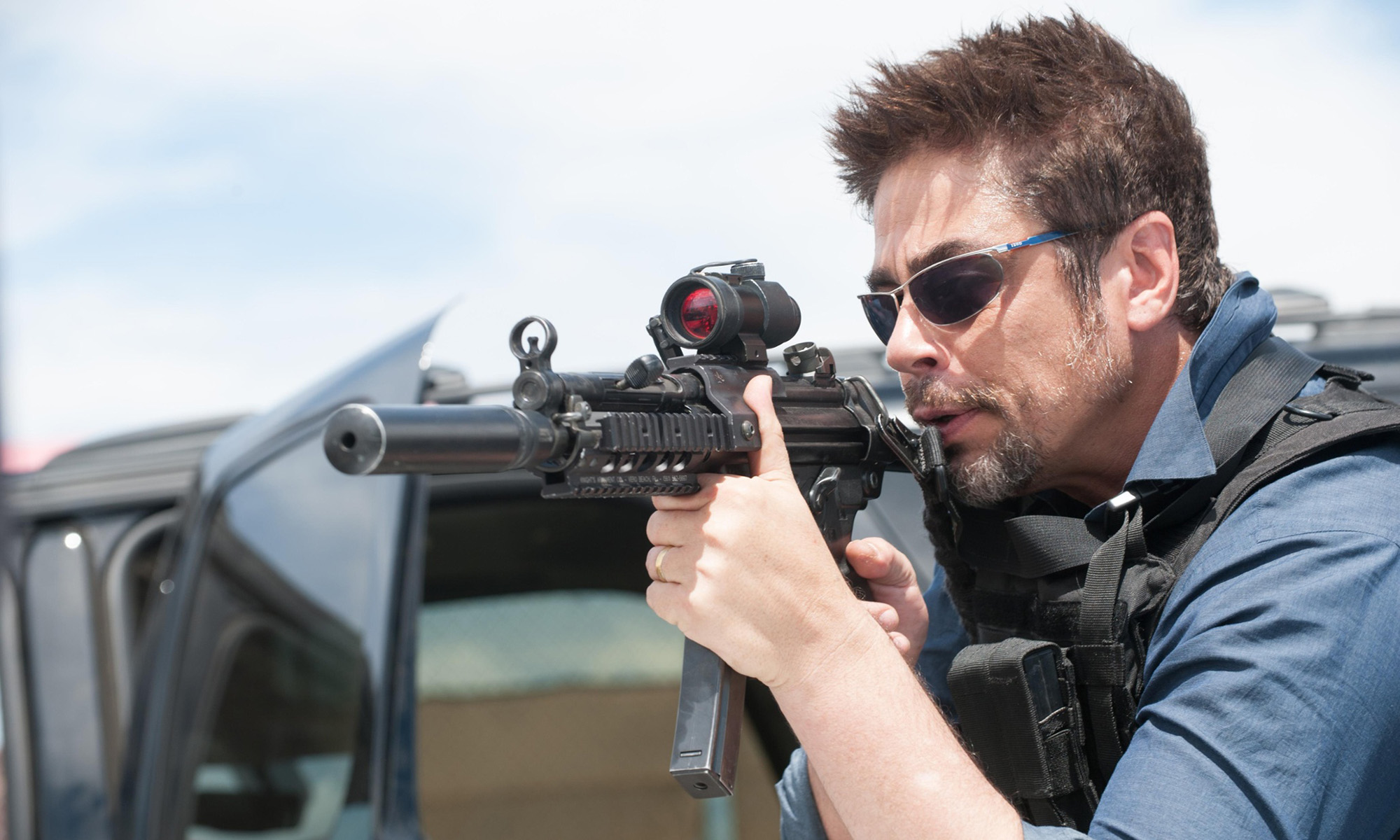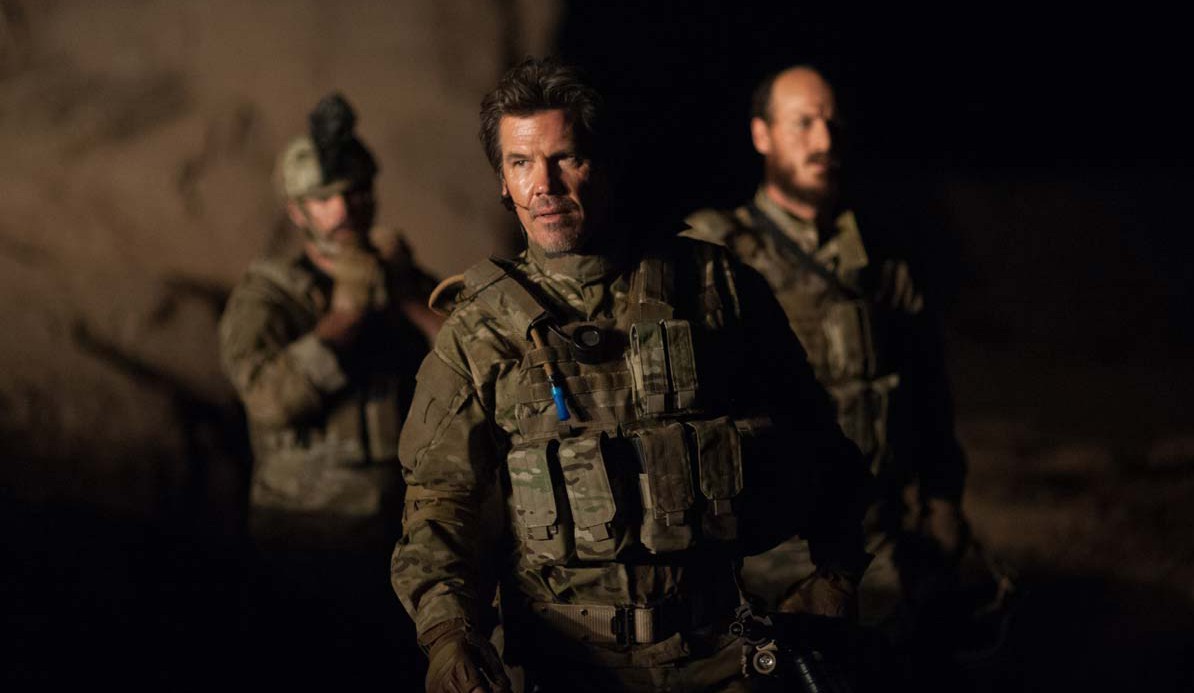REVIEW: 'Sicario'
All I know about hitmen is what movies and TV have taught me, and maybe it’s better that way. But if there’s one detail repeated over and over about fictional assassins, it’s that the most effective ones are quiet individuals, who only commit violence when necessary, and swiftly move on to the next objective. They don’t let people get to know them, and yet we’re fascinated by them. We want to understand how they do what they do.
It’s fitting then, that a film called Sicario - a Mexican term for hitman - so closely resembles its namesake, and all the precise, intense qualities that come with it. The new film from Denis Villeneuve is well-oiled machine, a movie that doesn’t waste time with speeches or exposition or a need to make itself understood. And even though the setting of the story is the murky conflict of the drug war on the U.S.-Mexico border, Villeneuve’s picture is like a sniper’s bullet; it fires straight through any distractions. It simply shows how one FBI agent gets pulled into an operation much bigger than herself, and invites us to interpret the clues it leaves behind.
Oddly, it’s not accurate to say the star of the film is at the centre of the action. Emily Blunt plays Kate Macer, an FBI tactical expert in Arizona who’s been trying and failing to stem the flow of violence into the state. After a gruesome discovery during a police raid, Macer is asked to volunteer for a task force that will root out the real bad guys behind the surge in drug activity. However, this sends Macer tumbling into a nebulous underworld of shady agreements and controversial tactics, and as Macer realizes how minimal her role is in the overall operation, her character begins to fade from the film, and Blunt’s co-stars muscle in.
It’s not a narrative choice you see very often in crime thrillers, where the hero is usually front and centre, solving the crime and fighting the villain. By contrast, Macer’s bosses point out that she’s not a case-cracking detective prodigy; she doesn’t collect evidence or bring people to trial. Her main skill is “knocking down doors”. In fact, the film shows Macer making a number of serious mistakes. So the question becomes: does she fit the description of that longed-for label in modern moviemaking: the Strong Female Character?
I believe she is, even if it doesn’t look that way on the surface. Even though Macer doesn’t have much of an effect on the direction of the story, she is the moral centre of the film. Her ethics are buffeted by a storm of corruption howling around her: local police bought out by the cartels, federal agents who gleefully lead extra-judicial strike teams, mysterious men who want to save Macer one moment and sacrifice her the next.
To emphasize this, in scene after scene, Sicario shows Macer being forcefully subdued - professionally, physically and emotionally - by the men in the film. Josh Brolin’s “Department of Justice advisor” character forces his operational decisions on her. Alejandro, another “advisor” (played brilliantly by Benecio Del Toro) coerces her to wipe the record of their work. When Macer protests, she’s threatened, choked, or slammed into objects. And yet, though she’s made to bend, Macer doesn’t break. The film doesn’t need to show her methodically kicking ass and spitting out quips to prove her strength - instead, it’s all contained in how Macer sticks to her convictions and picks herself up to fight on.
That being said, Sicario isn’t just a one-woman character study. It does incorporate a lot of what we expect from the genre: tense gun battles, interrogation of suspects, menacing one-on-one conversations between quasi-allies. There’s some political discussion of the efficacy of the war on drugs, but thankfully the film is more concerned with the brutal, human toll the conflict has had.
Genre tropes aside, all the proceedings are drenched in the beautiful cinematography work of Roger Deakins, which elevates the material even further. Villeneuve and Deakins create long aerial shots that drift above the desert, sweeping the audience towards the next bloody encounter. And accompanying every scene is the vibrating pulse of the score by Jóhann Jóhannsson, which has callbacks to his work for Villeneuve’s last film, the excellent Prisoners.
The temptation in a film like Sicario might be to bludgeon the audience with torture scenes or gory violence, but Villeneuve’s movie hovers chillingly above that. From the first scene, there’s a persistent feeling that every step these characters take is being watched by someone, that they’re never alone. In a way, that sense of dread is a far more affecting portrayal of the drug war than a flash-bang shoot-em-up would be, especially when we see the toll the fear takes on people like Kate Macer, who only wishes she knew how to make it stop.
Sicario gets three and a half stars out of four.
What did you think of the new film by Denis Villeneuve? Is it another chilling addition to the director’s filmography, like Prisoners? Or does the movie get tripped up by its bleak atmosphere? Join the discussion in the comments section, and if you liked this review, share it with your friends and followers!




